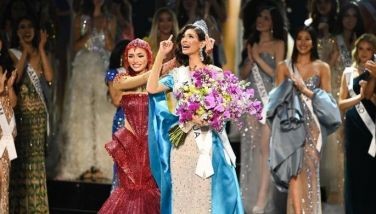The UN on academic freedom
Article 13 of the 1976 United Nations International Covenant on Economic, Social and Cultural Rights focuses on the right to education. In its 1999 interpretation of that article, the UN Committee on Economic, Social and Cultural Rights distinguishes between individual academic freedom and institutional academic freedom.
The UN Committee’s first provision goes this way: “Members of the academic community, individually or collectively, are free to pursue, develop and transmit knowledge and ideas, through research, teaching, study, discussion, documentation, production, creation or writing. Academic freedom includes the liberty of individuals to express freely opinions about the institution or system in which they work, to fulfil their functions without discrimination or fear of repression by the State or any other actor, to participate in professional or representative academic bodies, and to enjoy all the internationally recognized human rights applicable to other individuals in the same jurisdiction. The enjoyment of academic freedom carries with it obligations, such as the duty to respect the academic freedom of others, to ensure the fair discussion of contrary views, and to treat all without discrimination on any of the prohibited grounds.”
Since individual academic freedom is a very complex issue, let me devote future columns to this first provision. Today let me discuss only the second provision, which reads: “The enjoyment of academic freedom requires the autonomy of institutions of higher education. Autonomy is that degree of self-governance necessary for effective decision-making by institutions of higher education in relation to their academic work, standards, management and related activities. Self-governance, however, must be consistent with systems of public accountability, especially in respect of funding provided by the State. Given the substantial public investments made in higher education, an appropriate balance has to be struck between institutional autonomy and accountability. While there is no single model, institutional arrangements should be fair, just and equitable, and as transparent and participatory as possible.”
The second provision is about institutional academic freedom.
It is institutional academic freedom that is enshrined in our own 1987 Constitution. Section 5 of Article 14 on Education, Science and Technology, Culture and Sports, states clearly and simply, that “academic freedom shall be enjoyed in all institutions of higher learning.”
It is important to note that our Constitution, following the UN covenant, grants academic freedom only to institutions of higher learning (that is, colleges and universities), rather than to all schools, such as elementary or high schools. Since individual academic freedom is a consequence of institutional academic freedom, we can immediately see that elementary and high school teachers and students do not enjoy academic freedom.
What is institutional academic freedom? Our own Supreme Court has defined it: “We have held time and again that the University has the academic freedom to determine for itself on academic grounds who may teach, what may be taught, how it shall be taught, and who may be admitted to study.” (G.R. No. 132860,
That is what institutional academic freedom is and that is all it is. A university can hire and fire teachers, can formulate and restrict curricula and syllabi, can specify teaching methods, and can accept or expel students — all without any interference from any outside entity, not even government.
Immediately, we see why our Commission on Higher Education (CHED) is regarded by many, if not most university administrators as misled. Although it was conceived to be developmental (that means providing universities with opportunities to be world-class), CHED has often actually been regulatory, something against the Constitution itself.
It is not just a question of leadership, although the current leadership in CHED is undeniably unlawful. The problems of higher education will not be solved by a mere change of government managers. It is a question of CHED doing what it is not supposed to do. CHED is not supposed to infringe on the academic freedom of higher education institutions. (Continued next week)
“WORDS OF THE DAY” (English/Filipino) for next week’s elementary school classes: Feb. 18 Monday: 1. force/itsura, 2. paper/itay, 3. picture/ipin, 4. animal/imbento, 5. religion/iskolar, 6. extended/istandard; Feb. 19 Tuesday: 1. front/itlog, 2. number/ispeling, 3. reading/ipis, 4. library/intindi, 5. reaction/intriga, 6. authority/isponsor; Feb. 20 Wednesday: 1. board/itim, 2. answer/ineng, 3. ready/ipit, 4. attention/ice, 5. selection/inspirasyon, 6. intermittent/intercom; Feb. 21 Thursday: 1. first/join, 2. morning/jelly, 3. offer/judge, 4. direction/jackpot, 5. separate/jaguar, 6. education/jamboree; Feb. 22 Friday: 1. black/kuya, 2. early/kuwit, 3. living/kuto, 4. material/kutsinta, 5. instrument/kuykoy, 6. sufficient/kupit. The numbers after the dates indicate grade level. The dates refer to the official calendar for public elementary schools. For definitions of the words in Filipino, consult UP Diksiyonaryong Filipino.
- Latest
- Trending



























